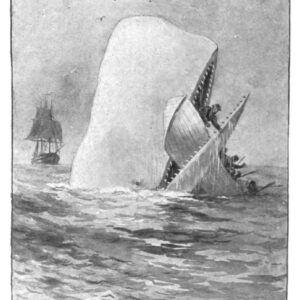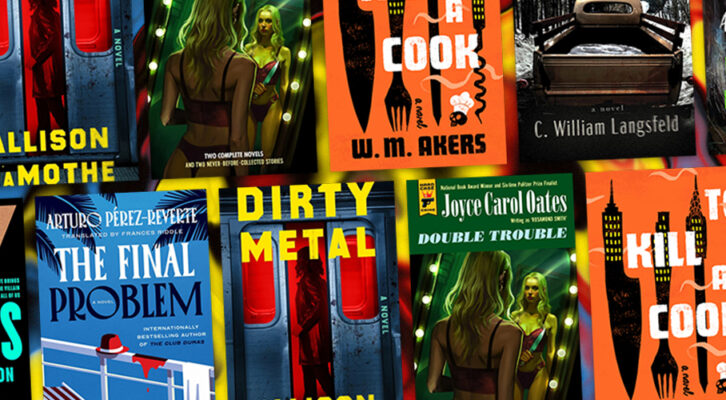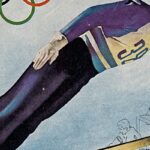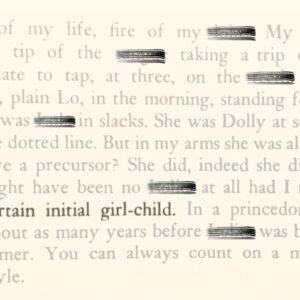Lit Hub Weekly: June 1 - 4, 2021
THE BEST OF THE LITERARY INTERNET

-
“Then the devastating Tulsa Disaster burst upon us, blowing to atoms ideas and ideals no less than mere material evidence of our civilization.” Read Mary E. Jones Parrish’s account of the 1921 Tulsa Race Massacre. | Lit Hub History
Article continues after advertisement -
Jess McHugh on the cultural force of Betty Crocker’s Picture Cook Book, which dictated “what it meant to be a good wife and mother.” | Lit Hub Food
-
Natasha Trethewey considers the timeless poetry of Muriel Rukeyser, who wrote “with the clarity and moral authority of one whose life was boldly and fully lived.” | Lit Hub Poetry
-
Rebecca Starford finds great fiction in the moral ambiguity of the spy. | CrimeReads
-
Merve Emre on Mieke Kawakami, Ron Charles on Rivka Galchen, and more of the Reviews You Need to Read This Week. | Book Marks
Article continues after advertisement -
“What I didn’t fully expect was the abiding and overwhelmingly white silence many Asian people have encountered from even would-be allies.” R.O. Kwon addresses the white bystanders to anti-Asian violence. | Vanity Fair
-
Today in News That Should Terrify Us All: Amazon is ramping up efforts to “disrupt” healthcare. | The New Republic
-
Imbolo Mbue, Olivia Laing, and more writers recall formative encounters with the (terrifying, sublime, unknowable) natural world. | Times Literary Supplement
-
Yet another case of “Anonymous was a woman”: Henry David Thoreau’s sister, Sophia, singlehandedly edited four posthumous volumes of her brother’s essays. | JSTOR Daily
-
Barrett Swanson considers the powerhouse influencers who rule TikTok and the commodification of personhood. | Harper’s Magazine
Article continues after advertisement -
“It’s not only publishing, I think it’s a lot of industries that are mostly white where we commodify Blackness, where you only need this one version of this thing for this one purpose.” Zakiya Dalila Harris on her debut novel, characterization, and her experiences in publishing. | NPR Weekend Edition
-
Michelle Zauner talks about the differences between recording an album and writing a book, making art in quarantine, and DIY. | The Creative Independent
-
A love letter to the letter X, signifier of the mysterious, expansive, and unknown. | New York Times Magazine
-
Kristen Arnett describes the writing routine that helps her “lean into a scene with abandon.” | Interview Magazine
-
For the audiobook of Four Hundred Souls, 87 narrators came together “to share 400 years of the African American experience.” | BookPage
Article continues after advertisement -
“You can’t help but thrill to language that imagines it can get something done.” Lidija Haas considers the manifesto. | Bookforum
-
“I always feel like writing the most when I’m being made invisible.” Kate Zambreno talks about her new book, the creative process, and her postpartum experience. | Los Angeles Times
-
Sam Bett and David Boyd discuss translating Mieko Kawakami. | Full Stop
-
In the midst of an ongoing debate about whose voices to amplify, “publishers today are teetering on a tightrope.” | The Guardian
-
Monica West and Kelsey McKinney discuss writing about religion and disillusionment. | Entertainment Weekly
Article continues after advertisement
Also on Lit Hub:
Kiese Laymon recommends describing your writer’s block • Francisco Goldman talks to Rachel Kushner about autofiction and identity • Why is everyone raising chickens? • Alice Waters on why we need regenerative farming • Sasha Issenberg on the ACLU’S long fight for marriage equality • Simon Sebag Montefiore considers great orators throughout history • Byron Reese and Scott Hoffman on the concept of “wasted time” • Grace Perry considers what she internalized during her 75ish viewings of Mean Girls • What kinds of stories get to attain the status of modern myth? • How 80s New York spawned the Lunachicks • Lauren Aguirre explains how we recover memories… and formulate fake ones • Teresa Fazio watches The War and Peace of Tim O’Brien • Heidi Seaborn on sleeplessness, ambien dependency, and Marilyn Monroe • Read Frank Light’s dispatches from the “reconstruction” of Afghanistan • 10 short story collections to read this summer • Doireann Ní Ghríofa talks to Lori Feathers about writing and embodying a female text • Fumi Okiji reflects on the magic of avant-garde jazz trumpeter Don Cherry • Ashley C. Ford on a complicated maternal bond and intergenerational love • How the poets wrote of Billie Holiday • Mitchell S. Jackson reflects on Darryl DeAngelo Terrell’s Project 20, cyanotype portraits of Black and Brown America • How can museums reckon with colonial legacies and regain public trust? • Why Benjamin Percy is taking a page from comic books • Sara Flannery recommends sci-fi takes on reproduction • How Pamela Erens got over her self-doubt about writing a middle grade novel • Alan Maimon on reporting Appalachia and the existential crisis of newspapers • What Thoreau taught David Gessner about a daily writing practice • Peter Wohllenberg considers how we talk about forests
The Best of Book Marks:
Cannibal nuns, fairytale mashups, and Aztec goddesses all feature among June’s Best Sci-Fi and Fantasy • The Bluest Eye, Lost in the City, All the Pretty Horses, and more rapid-fire book recs from Marie-Helene Bertino • James Holland on the five best books about D-Day • Pride and Prejudice, Little Women, The Amber Spyglass, and more rapid-fire book recs from Beth O’Leary • New titles from Sinead O’Connor, Zakiya Dalila Harris, Kristen Arnett, and Doireann Ní Ghríofa all feature among the Best Reviewed Books of the Week
More from CrimeReads:
Lisa Unger with five horror novels that reach into the darkest corners of our minds • From musician to muse to wife to sex doll—Maria Hummel on the savage remaking of Alma Mahler • Curtis Evans on Elise De Viane, the mystery woman in Dashiell Hammett’s 1931 sexual assault case • Philip Jaekl on an early marvel of “suspended animation” • Harriet Walker on a new trend of destination thrillers • Gilles Legardinier traces the hidden history of secret Paris • Rahul Raina on classic con artist fiction • Olivia Rutigliano considers the high-stakes crime film One Hundred and One Dalmatians • Why have we forgotten Jack Ruby’s trial? • Margalit Fox on the WWII POWs who used spiritualism to engineer a daring escape



















